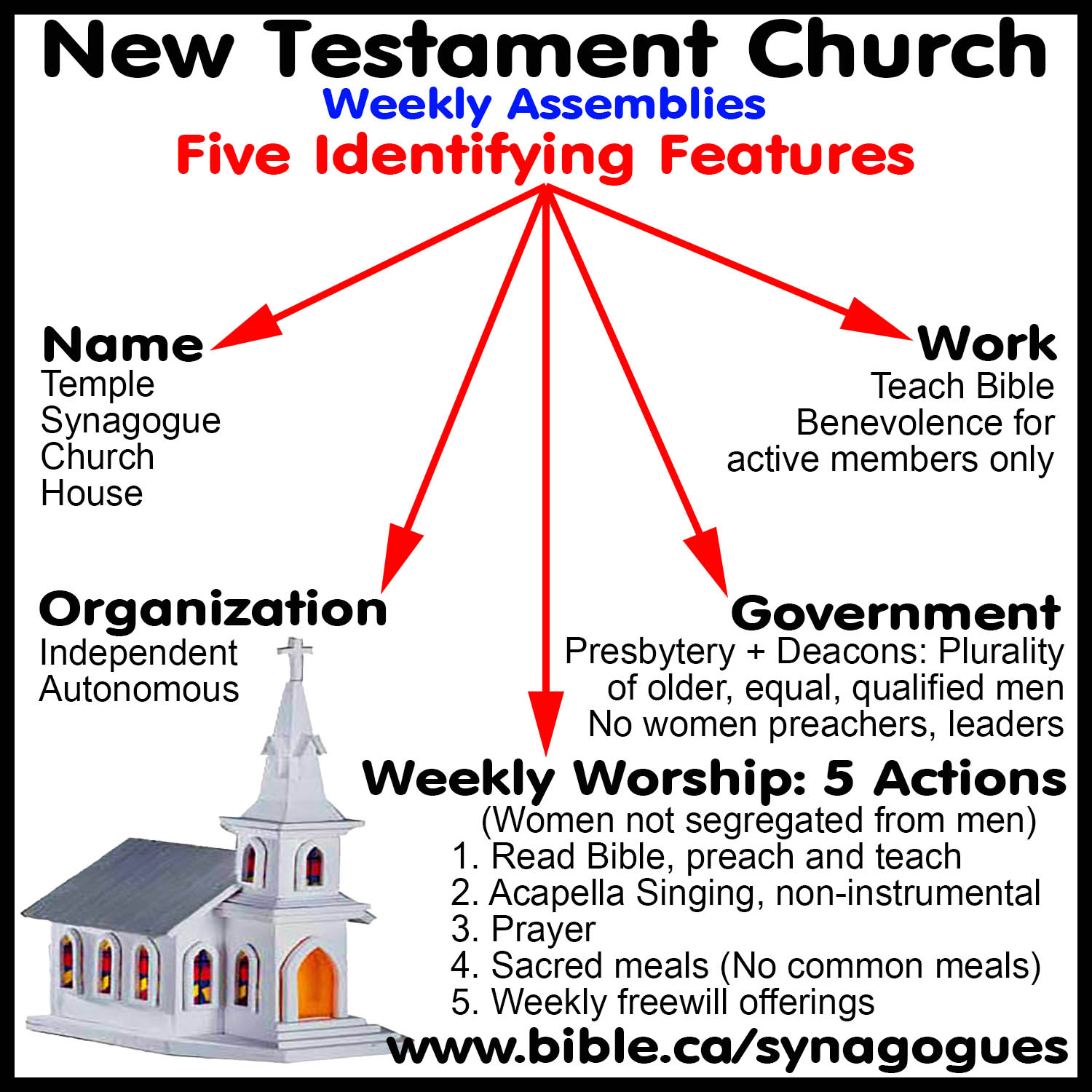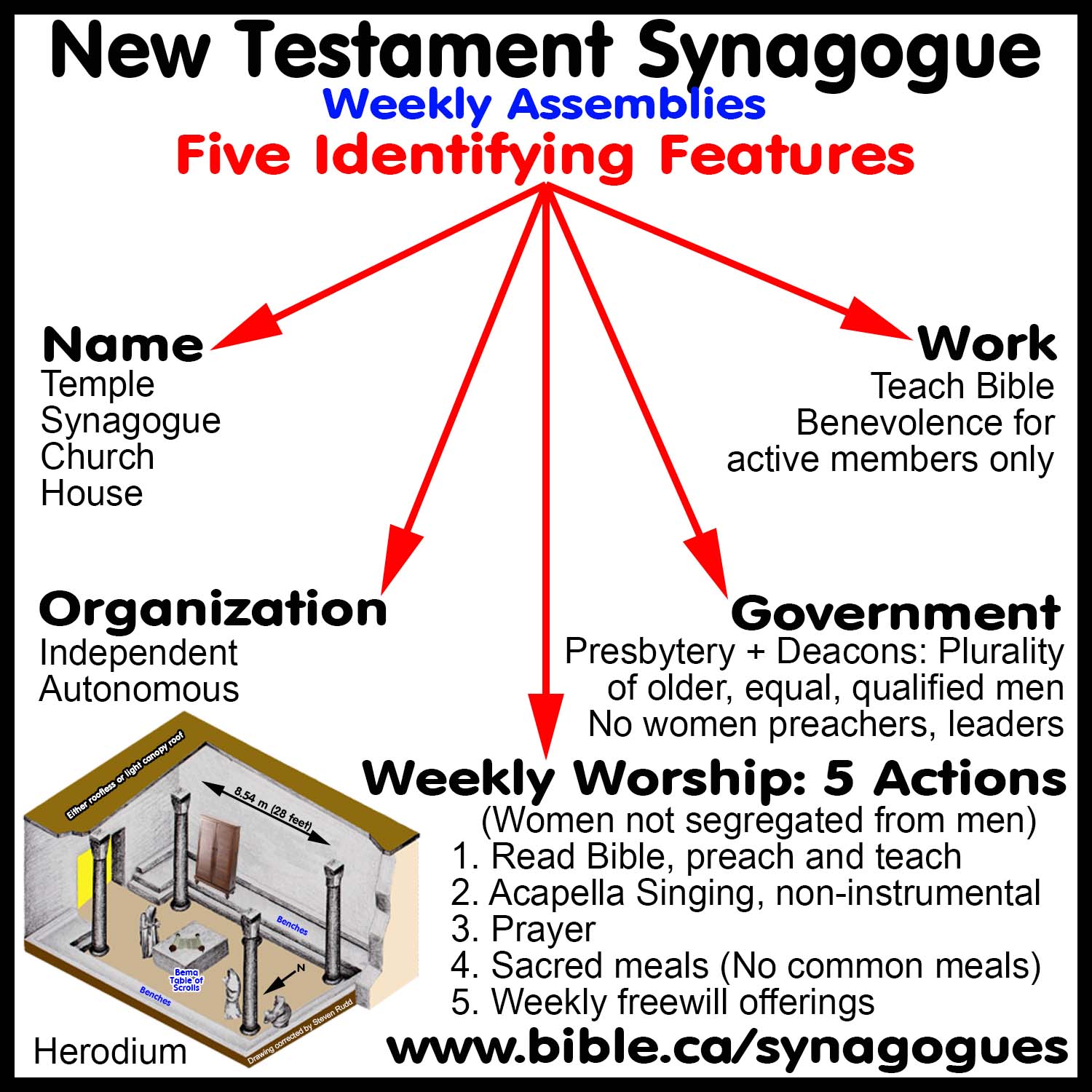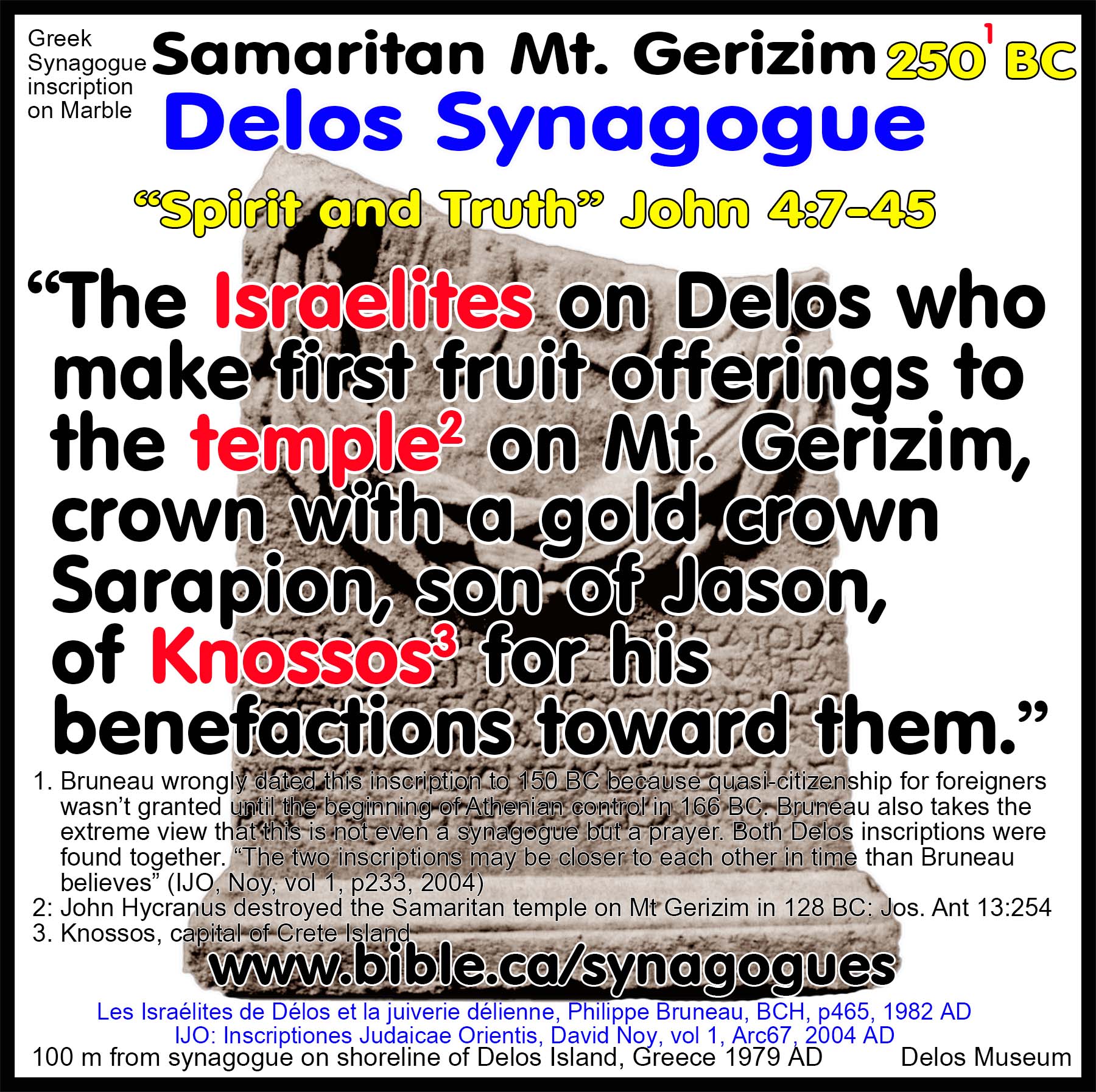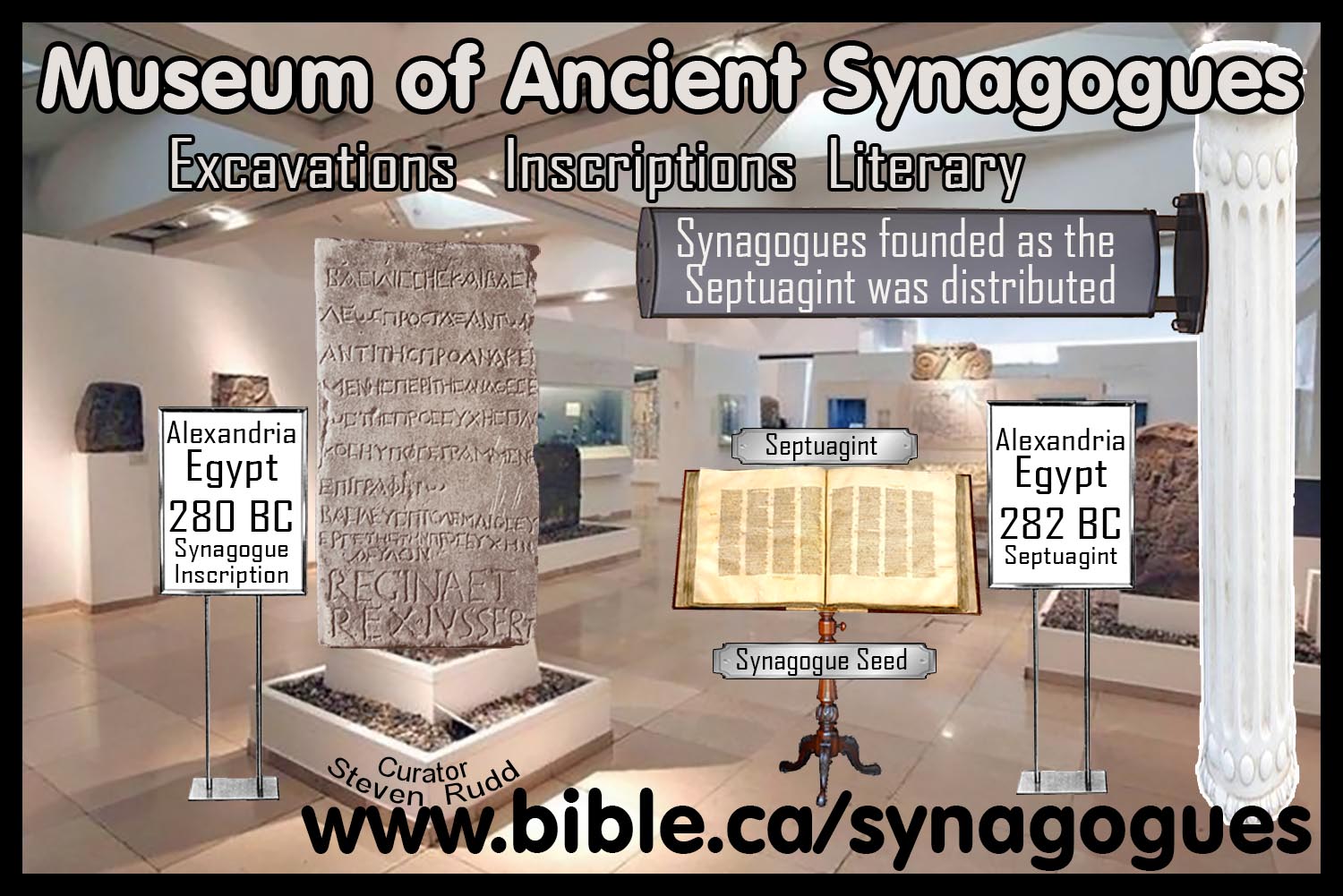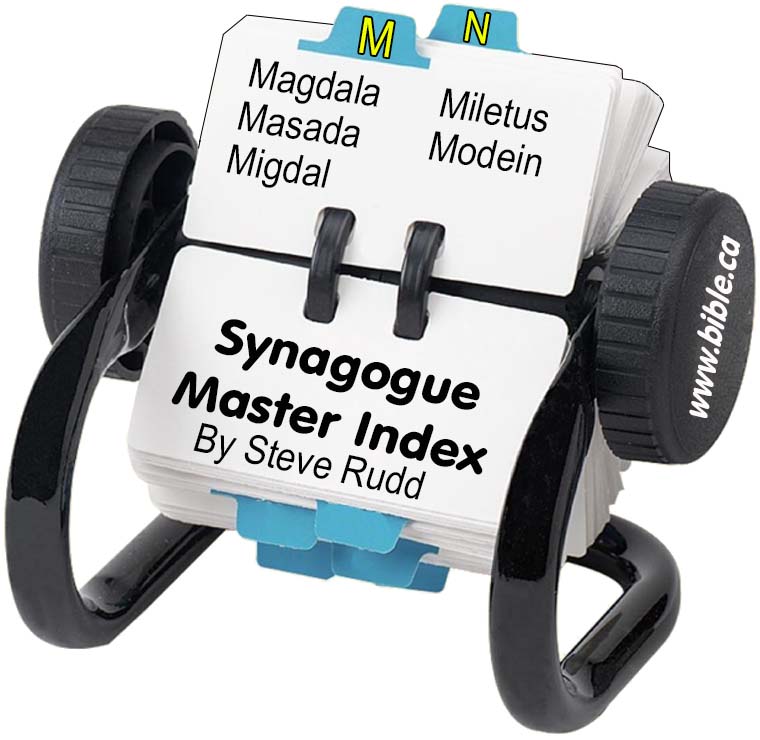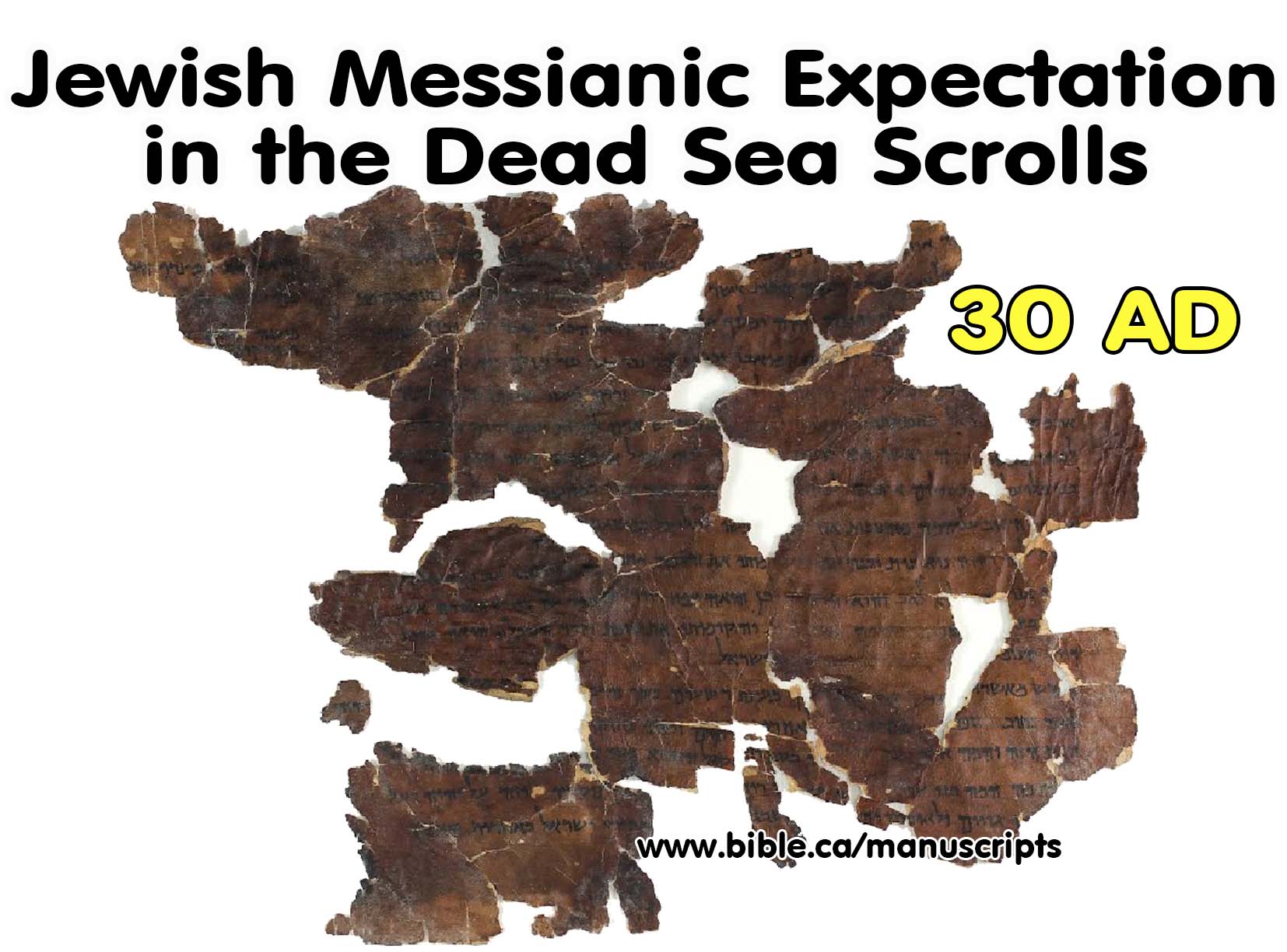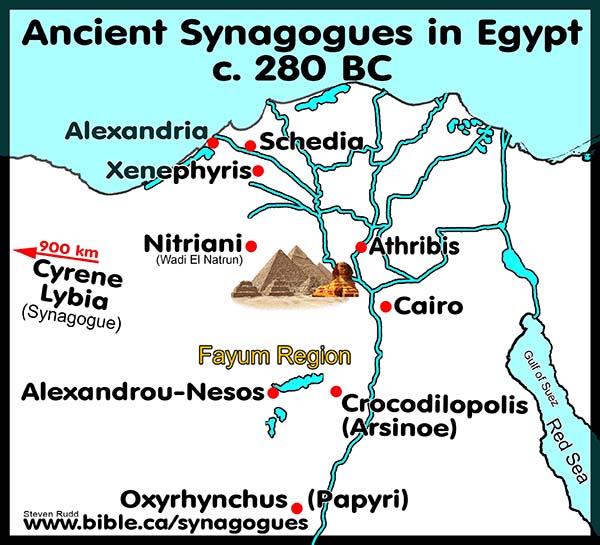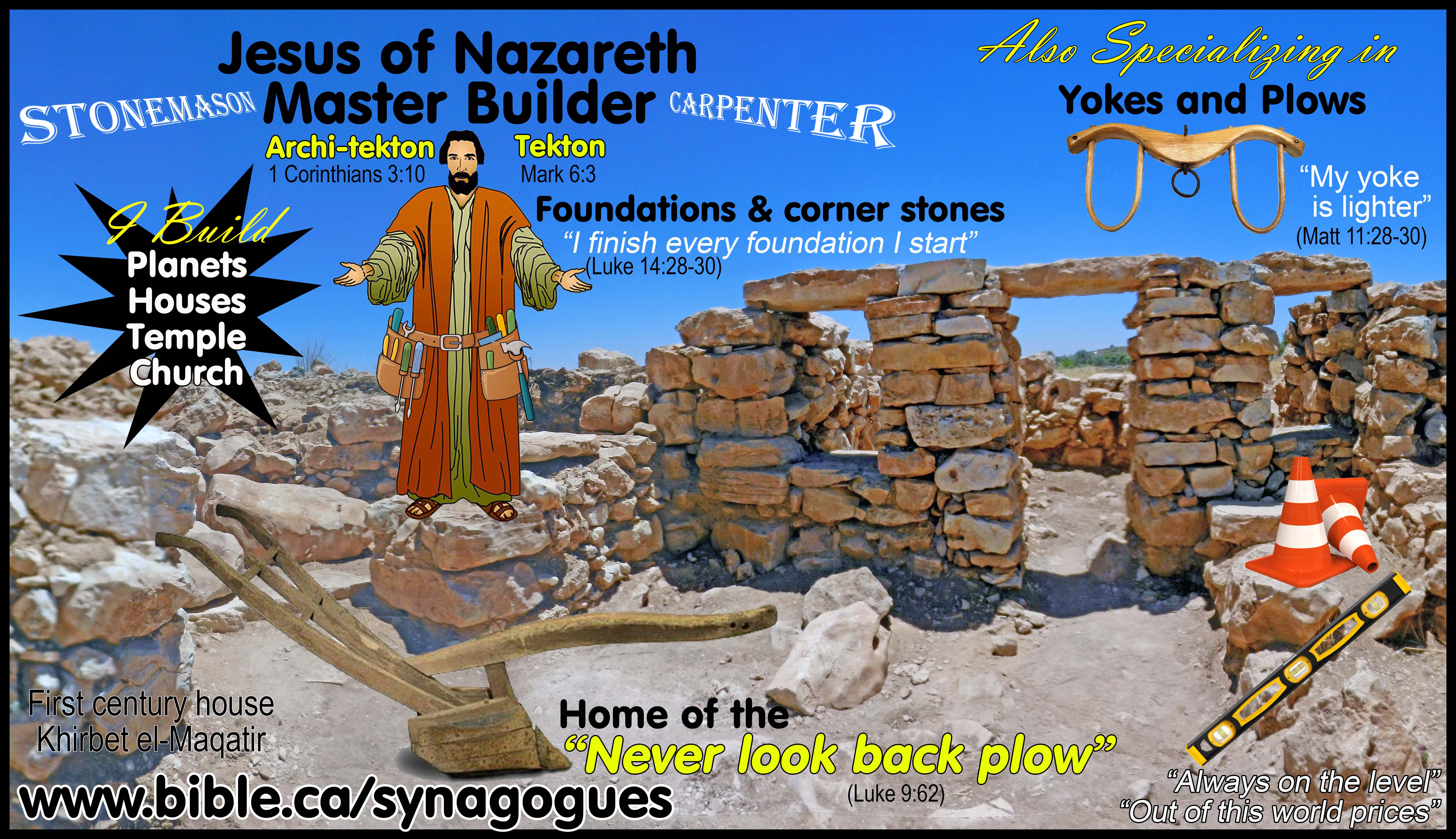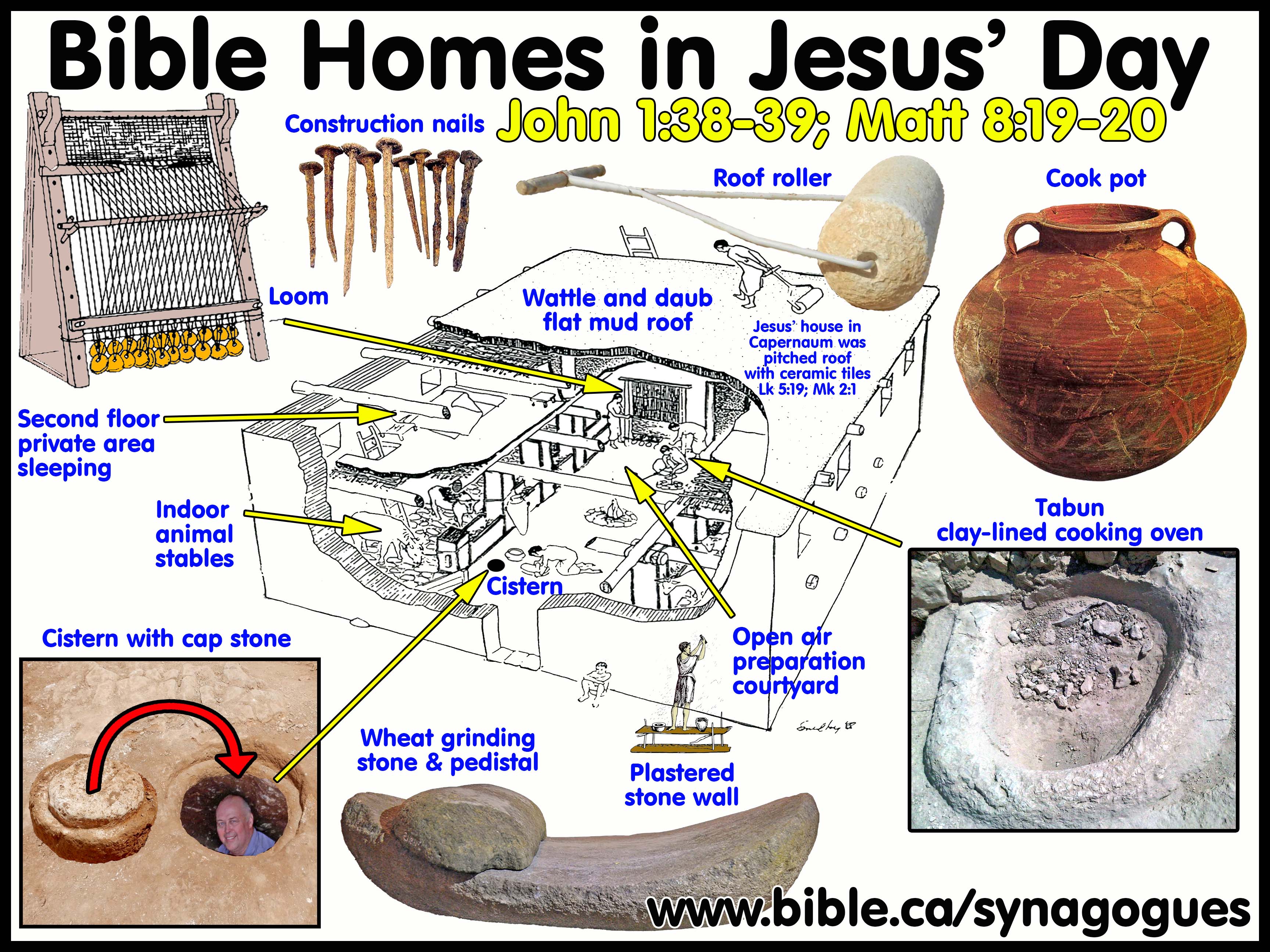|
Freewill Weekly Collections for Benevolence in Synagogues First Century Synagogues and churches |
“On this Rock, I will build My church”
Ancient Synagogue Worship and the Church
Synagogue worship was the prototype for Christian Church.
|
WEEKLY FREEWILL COLLECTIONS FOR BENEVOLENCE IN SYNAGOGUES |
A. Weekly freewill collections sent annually to Jerusalem:
1. Dating to 250 BC the Delos synagogue of Samaritans inscription sent first fruits to the temple on Mt. Gerizim.
a. The two inscriptions were found together on the shore 90 meters from the excavated synagogue.
b. Both use the phrase “first fruits” to describe their collection of money sent to the Samaritan Temple at Mt. Gerizim.
2. The imperial decree for Delos 54 BC: “Caius Caesar, our imperator and consul, in that decree wherein he forbade the Bacchanal rioters to meet in the city, did yet permit these Jews and these only, both to bring in their contributions, and to make their common suppers.” (Josephus, Antiquities 14.213-215, decree 54 BC)
3. “Caius Norbanus Flaccus, proconsul, to the governors of the Ephesians, greeting. “’Caesar has written word to me, that the Jews, wherever they are, are accustomed to assemble [greek: synago] together, in compliance with a peculiar ancient custom of their nation, to contribute money which they send to Jerusalem; and he does not choose that they should have any hindrance offered to them, to prevent them from doing this; therefore I have written to you, that you may know that I command that they shall be allowed to do these things.’” (Philo, Embassy 315)
4. “Therefore, he [Augustus] knew that they had synagogues [house of prayer: proseuche], and that they were in the habit of visiting them, and most especially on the sacred sabbath days, when they publicly cultivate their national philosophy. He knew also that they were in the habit of contributing sacred sums of money from their first fruits and sending them to Jerusalem by the hands of those who were to conduct the sacrifices.” (Philo, Embassy 156)
B. Synagogue treasuries and the collection of money for local worship and benevolence of the poor:
1. Synagogues took collections for the needy Jewish poor:
a. "So when you give to the poor, do not sound a trumpet before you, as the hypocrites do in the synagogues and in the streets, so that they may be honored by men. Truly I say to you, they have their reward in full." (Matthew 6:2)
b. “And said R. Eleazar, “They may pledge charity for the poor on the Sabbath.” And said R. Jacob said R. Yohanan, “They may go to synagogues and study houses to supervise public business on the Sabbath.” (Babylonian Talmud, Ketubot 5A:E-F)
c. Theodotos inscription in city of David Jerusalem: “Of singular importance in this inscription is the listing of three synagogue activities: reading the Torah, teaching the commandments, and providing rooms and water for itinerant pilgrims.” (The Ancient Synagogue, Lee Levine, p58, 1999 AD)
2. Synagogues maintained treasuries just like churches:
d. “but if any be caught stealing their holy books, or their sacred money, whether it be out of the synagogue [Sabbath meeting].” (Josephus Antiquities 16.164)
a. Delos 54 BC: “Caius Caesar, our imperator and consul, in that decree wherein he forbade the Bacchanal rioters to meet in the city, did yet permit these Jews and these only, both to bring in their contributions, and to make their common suppers.” (Josephus, Antiquities 14.213-215, decree 54 BC)
b. Ephesus 76 BC: “I do therefore grant them a freedom … for collecting oblations necessary for sacrifices; and my will is, that you write this to the several cities under your jurisdiction.” (Josephus Antiquities 14.227, decree: Ephesus 76 BC, Hyranus II)
C. Thieves steal gold out of Synagogue treasuries destined for Jerusalem Temple violating asylum status:
1. Notice in the ancient literary sources quoted below that the treasuries stored inside synagogues were targets of thieves.
2. Notice also that it was considered to be a breech of the Asylum status granted to every synaogogue.
a.
“The next thing is that charge [stealing] about
the Jewish gold. … As gold, under pretence of
being given to the Jews, was accustomed every year to be exported out of Italy
and all the provinces to Jerusalem, Flaccus issued an edict establishing
a law that it should not be lawful for gold to be exported out of Asia. … There
was a hundredweight of gold, more or less openly
seized at Apamea, and weighed out in the forum
at the feet of the praetor, by Sextus Caesius, a Roman knight, a most excellent
and upright man; twenty
pounds weight or a little more were seized at Laodicea, by Lucius
Peducaeus, who is here in court, one of our judges; some was seized also
at Adramyttium, by Cnaeus Domitius, the lieutenant, and a small quantity at Pergamus.” (Marcus Tullius Cicero, 106-54 BC,
For Flaccus 28, Speech of M. T. Cicero in defence of Lucius Valerius
Flaccus, 59 BC)
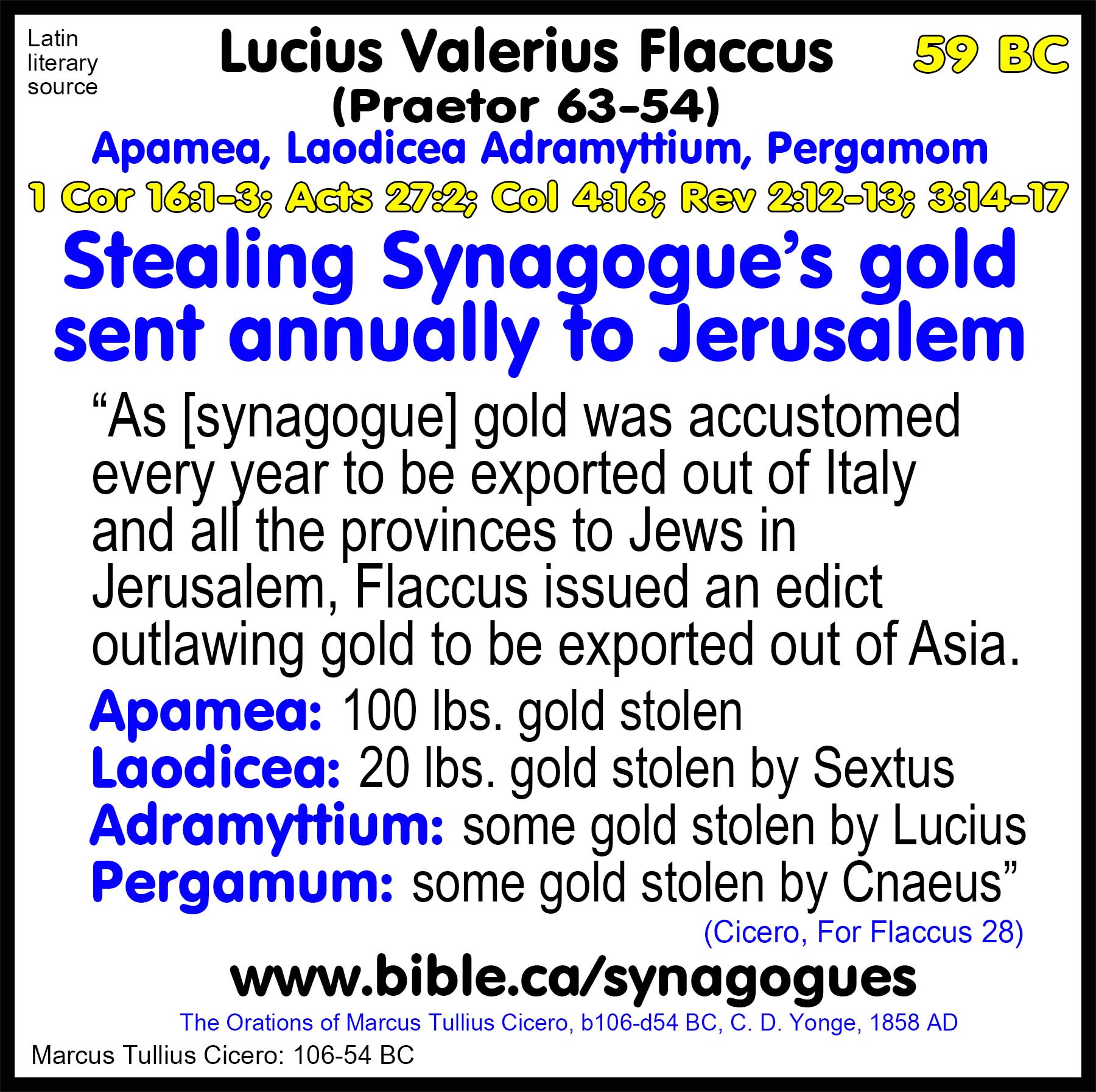
b. “Agrippa also did himself write, after the manner following, on behalf of the Jews:— “Agrippa, to the magistrates, senate, and people of the Ephesians, sendeth greeting. I will that the care and custody of the sacred money that is carried to the temple at Jerusalem be left to the Jews of Asia, to do with it according to their ancient custom; (168) and that such as steal that sacred money of the Jews, and fly to a sanctuary, shall be taken thence and delivered to the Jews, by the same law that sacrilegious persons are taken thence. I have also written to Sylvanus the praetor, that no one compel the Jews to come before a judge on the Sabbath day.” (Josephus, Antiquities 16.167-168)
c.
Josephus on the Ephesian synagogue and the imperial decree in 43 BC:
“When Artemon was prytanis, on the first day of the month Leneon, Dolabella
imperator, to the senate and magistrates, and people of the Ephesians, sendeth greeting. (226) Alexander, the son
of Theodorus, the ambassador of Hyrcanus, the son of Alexander the high priest
and ethnarch of the Jews, appeared before me, to show that his countrymen could
not go into their armies, because they are not
allowed to bear arms, or to travel on the Sabbath days, nor there to procure
themselves those sorts of food which they have been used to eat from the
times of their forefathers,—(227) I do therefore grant
them a freedom from going into the army, as the former prefects have
done, and permit them to use the customs of their forefathers, in assembling together for sacred and religious purposes, as
their law requires, and for collecting oblations necessary for sacrifices;
and my will is, that you write this to the several cities under your
jurisdiction.” 13. (228) And these were the concessions that Dolabella made to
our nation when Hyrcanus sent an embassage to him; but Lucius the consul’s
decree ran thus:—“I have at my tribunal set these Jews, who are citizens of
Rome, and follow the Jewish religious rites, and yet live at Ephesus, free from going into the army, on account of
the superstition they are under.” (Josephus Antiquities 14.225–228, decree: 43
BC)
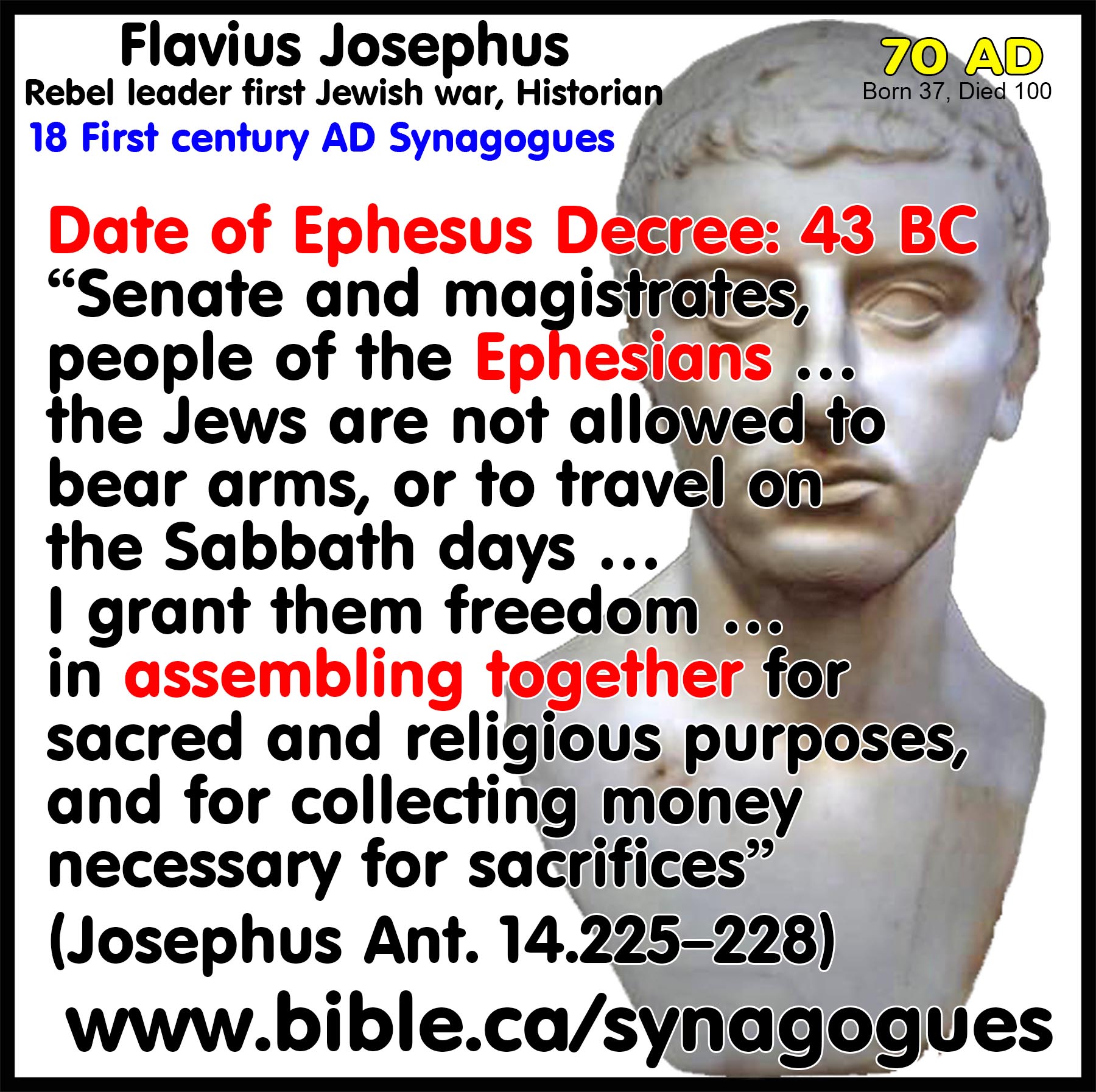
D. THE CHURCH: Weekly Freewill Collection of money sent to annually: 1 Corinthians 16:1-2
1. "Now concerning the collection for the saints, as I directed the churches of Galatia, so do you also. On the first day of every week each one of you is to put aside and save, as he may prosper, so that no collections be made when I come. When I arrive, whomever you may approve, I will send them with letters to carry your gift to Jerusalem; and if it is fitting for me to go also, they will go with me." (1 Corinthians 16:1–4)
a. The weekly contributions in each church were specifically earmarked for benevolence of the Jerusalem needy poor saints.
b. This was money put into a common church treasury, not saved up in each Christian’s home because of the statement: “that no collections be made when I come”.
c. Seventh-day Adventist’s falsely claim this was not a common collection in a church service on Sunday, but they are gravely mistaken.
2. "We have sent along with him the brother whose fame in the things of the gospel has spread through all the churches; and not only this, but he has also been appointed by the churches to travel with us in this gracious work, which is being administered by us for the glory of the Lord Himself, and to show our readiness, taking precaution so that no one will discredit us in our administration of this generous gift; for we have regard for what is honorable, not only in the sight of the Lord, but also in the sight of men. We have sent with them our brother, whom we have often tested and found diligent in many things, but now even more diligent because of his great confidence in you. As for Titus, he is my partner and fellow worker among you; as for our brethren, they are messengers of the churches, a glory to Christ. Therefore openly before the churches, show them the proof of your love and of our reason for boasting about you." (2 Corinthians 8:18–24)
d. Each local church would send a local man with a letter from the donating church to accompany Paul all the way to Jerusalem until the money was distributed.
e. This is a wise system accountability where each donating church sent one of their own to confirm the money reached its intended recipients.
f. Paul was also protected from any false accusations from Christians or outsiders that he “pulled a Jimmy Baker” and pocked the money himself for a new car.
3. "but now, I am going to Jerusalem serving the saints. For Macedonia and Achaia have been pleased to make a contribution for the poor among the saints in Jerusalem." (Romans 15:25–26)
4. "Now after several years I came to bring alms to my nation and to present offerings; in which they found me occupied in the temple, having been purified, without any crowd or uproar. But there were some Jews from Asia—" (Acts 24:17–18)
E. WEEKLY CONTRIBUTIONS: CHURCH VS. SYNAGOGUE
1. Both first century Synagogues and churches took weekly collections.
2. Synagogues used the money for the local poor Jews and once a year sent the money to Jerusalem to support the Temple.
3. Churches sent the money for benevolence to Jerusalem for the needy poor Christians while no money was given to the Jerusalem Temple.
|
Weekly Freewill contributions “Something old, something new” |
||
|
|
Local poor |
Distant Jerusalem Temple |
|
Jewish Synagogues |
Yes: Poor Jews only |
Yes |
|
Christian Churches |
Yes: Poor Christians only |
No |
|
Jews sent money to Jerusalem for the Temple Christians sent money to Jerusalem for the poor Christians The church copied the habit of sending money to Jerusalem but earmarked the funds for benevolence instead of supporting the Temple. |
||
F. Benevolence for local Christians from the church treasury:
1. 1 Timothy 5:3–16
a. "Honor widows who are widows indeed; but if any widow has children or grandchildren, they must first learn to practice piety in regard to their own family and to make some return to their parents; for this is acceptable in the sight of God. Now she who is a widow indeed and who has been left alone, has fixed her hope on God and continues in entreaties and prayers night and day. But she who gives herself to wanton pleasure is dead even while she lives. Prescribe these things as well, so that they may be above reproach. But if anyone does not provide for his own, and especially for those of his household, he has denied the faith and is worse than an unbeliever. A widow is to be put on the list only if she is not less than sixty years old, having been the wife of one man, having a reputation for good works; and if she has brought up children, if she has shown hospitality to strangers, if she has washed the saints’ feet, if she has assisted those in distress, and if she has devoted herself to every good work. But refuse to put younger widows on the list, for when they feel sensual desires in disregard of Christ, they want to get married, thus incurring condemnation, because they have set aside their previous pledge. At the same time they also learn to be idle, as they go around from house to house; and not merely idle, but also gossips and busybodies, talking about things not proper to mention. Therefore, I want younger widows to get married, bear children, keep house, and give the enemy no occasion for reproach; for some have already turned aside to follow Satan. If any woman who is a believer has dependent widows, she must assist them and the church must not be burdened, so that it may assist those who are widows indeed." (1 Timothy 5:3–16)
2. “WIDOWS INDEED” ARE DEFINED AS:
a. She must be a woman: men totally excluded.
b. She must be over 60 years old: widows 59 and younger are excluded.
c. She must be a widow: Single and married women excluded.
d. She must have raised children, old needy widows with no children were excluded.
e. She must have no living relatives who are Christians alive: They must support their own.
f. She must have had a long-established reputation of working hard with the church leaders for the gospel: Spiritually lukewarm widows excluded.
3. While most churches today completely ignore the specific restrictions on how to use the money from the church treasury, the Holy Spirit is clear.
4. Church treasury money can be used for the God ordained work of the church:
a. Worship: assembly buildings, communion, songbooks, etc.
b. Teaching: support of a preacher
c. Evangelism: printing, advertising, radio, TV, internet etc.
d. Benevolence to Christians only on one time emergency basis like the Jerusalem Christians who were in need.
e. Qualified widows
G. Individual Benevolence vs. Collective Church Benevolence from treasury:
1. "Pure and undefiled religion in the sight of our God and Father is this: to visit orphans and widows in their distress, and to keep oneself unstained by the world." (James 1:27)
a. The entire first chapter is individual advice for individual action.
b. Even if it was collective church action, it would be limited to Christian widows only who meet the conditions of 1 Tim 5.
c. In the end, this may be restricted to Christian widows and orphans of Christians only.
d. For those who want to build orphan’s homes and old folks homes and provide clean drinking water for entire towns dying of thirst in some third world country, do it with private funds only, never use a single dollar from the church treasury, and all will join in and help!
e. When liberals do these good deeds in unscriptural ways, informed Gospel preachers who would otherwise join the effort, end up criticizing the project.
f. The end never justifies the means.
g. Anything we do that we have have no Bible authority for, is a sin.
2. “The King will answer and say to them, ‘Truly I say to you, to the extent that you did it to one of these brothers of Mine, even the least of them, you did it to Me.’" (Matthew 25:40)
a. Not a single non-Christian is included as recipients where Jesus holds us accountable.
b. Liberals wanting to build secular schools, buy food and clothing in needy African countries with church treasury funds shockingly use this verse as a proof text that Christians must help non-Christians.
3. John 6 and the feeding of the 5000: Food for souls evangelism!!!
a. Individual action of Jesus, not collective.
b. Jesus did not run to the nearest synagogue and solicit funds.
c. Jesus, being a rich man, able to provide the food out his own personal resources, feed everyone with private funds.
d. When liberals use this as a proof text that churches should be running public soup kitchens to win souls for Christ, they need to realize that Jesus tried the experiment and proved for us that it doesn’t work.
i. "Jesus answered them and said, “Truly, truly, I say to you, you seek Me, not because you saw signs, but because you ate of the loaves and were filled." (John 6:26)
ii. "Therefore many of His disciples, when they heard this said, “This is a difficult statement; who can listen to it?”" (John 6:60)
iii. "As a result of this many of His disciples withdrew and were not walking with Him anymore." (John 6:66)
e. Evangelism using food or the social gospel doesn’t work. When will liberals stop dividing the church over unscriptural practices that do not work!
4. The Good Samaritan:
a. Individual action not an example of collective church action.
b. Notice the Samaritan did not run back to his Samaritan Synagogue (and Yes Samaritans had synagogues just like the Jews, see Delos)
c. Shockingly people use the Samaritan as scriptural authority for sponsoring churches where one large church solicits funds from hundreds of smaller church treasuries as a benevolence fund, then run around the world looking for those who have been robbed and are in need of a hotel room and medical care.
d. Sponsoring churches for benevolence are unauthorized but even if they were, the good Samaritan CANNOT be used because it was 100% individual action of a man who did run to “the church” to pay for his personal benevolence programs.
H. Application for the church today:
1. Its ok for the church to have a food bank for benevolence, as long as it is for Christians only and widows who meet the strict criteria of 1 Tim 5. If you want to help non-Christian widows, sell your house and give them the money or start a privately funded old folks home.
2. Its ok the church to run a hostile for visiting out of town Christians and preachers for gospel meetings but its not ok to start a hotel that charges discounted rates to random European backpackers travelling the world for fun. Many churches have church owned manses.
3. Its ok for the church to have storage buildings for scripture, books, bible libraries but its not ok to start a public “U-Store It” business. Most churches have libraries and storage rooms.
4. Its ok for the church to have civic style meetings for non-spiritual matters that directly relate to Christians (Acts 6), but its not ok to allow outside civic governments to use the church as a polling station for modern elections or all candidates meetings for city mayor. Disputing local members will often meet with the elders at the church building to resolve civic disputes.
5. Its ok for the church to get members to donate household goods and clothing for other local needy members, but its not ok to start a public thrift store that accepts donations from non-Christians to resell the goods for profit that is used to fund the construction of new church buildings or missionaries oversees or Bibles.
6. Its ok for a church to have a fridge and stone in the church building as long at it is used exclusively to bake the communion unleavened bread and keep the grape juice cold so it doesn’t spoil. Most churches have a fridge to store the Lord’s supper elements.
7. Its ok for money from the church treasury to be given to for occasional “one time needs” of any Christian anywhere, but it never ok to give a single dollar to any non-Christian from the church treasury. Churches regularly give money for medical emergencies of members.
8. Its ok for one church to send money to another church oversees to help the local Christians recover from disaster relief, it is not ok for any church to give money to the red cross or any generic relief agency. Christians are free to donate privately to the Red Cross.
9. Its ok for one church to send money to another recipient church where members are in need of humanitarian relief, but its not ok to send the money to rebuild African towns, build secular schools and provide medical aid for non-Christians. Benevolence from the church treasury cannot be used to support non-Christians the same way Jews only gave their benevolence to fellow needy Jews.
10. Its ok for a larger wealthy church to send money to a smaller needy church but its never ok for many smaller churches to send money to one larger and more wealthy “sponsoring church” that has much more money in its own church treasury, than all the smaller churches. A small “poorer” church sending money to a larger “richer” church is directly opposite to the New Testament pattern, without scriptural authority and always wrong regardless of the “greater good” being done.
11. Its ok for a local church to spend money for evangelism but its never ok for many smaller churches to send their money a larger “sponsoring church” to create a pool of money to run a multimillion dollar national evangelism program on behalf of the many church churches. This is a violation of autonomy and is without any Bible authority.
12. Its ok for the church to have a full government certified kitchen, complete with halon fire extinguishing system, as long as the only food they prepare is the unleavened bread and grape juice for communion or qualified widows as per 1 Tim 5. While such a kitchen may be authorized, all would agree it is an outrageous waste of the Lord’s money which could be spent in other areas. However, a congregation of 10,000 Christians would likely save time and money by having a large church kitchen with multiple ovens to bake the unleavened bread and bunker style fridges to store the grape juice and commercial dishwashers for washing communion cups for the for weekly communion.
13. Its ok for the church to gather for meals, as long as all the members already ate at home and are not hungry before they arrive to eat the Lord’s Supper. While synagogues gathered three times a year for sacred “full meals” of lamb that satisfied hunger, such was outlawed by the Holy Spirit in the church.
14. Its ok for a the church to install a passenger pigeon coop for communications, but today, its probably better to install phones in the offices and the internet at the pulpit, given it is much faster and way less messy.
15. Its ok to dig a well and install a drinking water fountain in the church building for members but its not ok for a church to install clean drinking water wells for non-Christians in third world towns that are dying from thirst. If you really care, you are free to sell your house, fly over and save the town with your own personal money by digging local water wells.
16. Its ok for a church to run a fully accredited university, as long as it is “tuition free” and funded only through weekly freewill offerings of Christians Sunday morning and teaches only Bible classes.
17. Its ok for a church to install a mikveh (baptistry) but its not ok for a church to construct an Olympic size public swimming to attract outside young families to the Sunday services by offering midweek swimming lessons for half the going rate at other civic swimming pools. The church should not be in competition with the local YMCA in providing social needs of the local non-Christian community.
By Steve Rudd 2017: Contact the author for comments, input or corrections
|
Jesus your messiah is waiting for you to come home! |
|
|
Why not worship with a first century New Testament church near you, that has the same look and feel as the Jewish Synagogue in your own home town. As a Jew, you will find the transition as easy today as it was for the tens of thousands of your forefathers living in Jerusalem 2000 years ago when they believed in Jesus the Nazarene (the branch) as their messiah. It’s time to come home! |
|
By Steve Rudd: Contact the author for comments, input or corrections.
Go to: Main Ancient Synagogue Start Page
